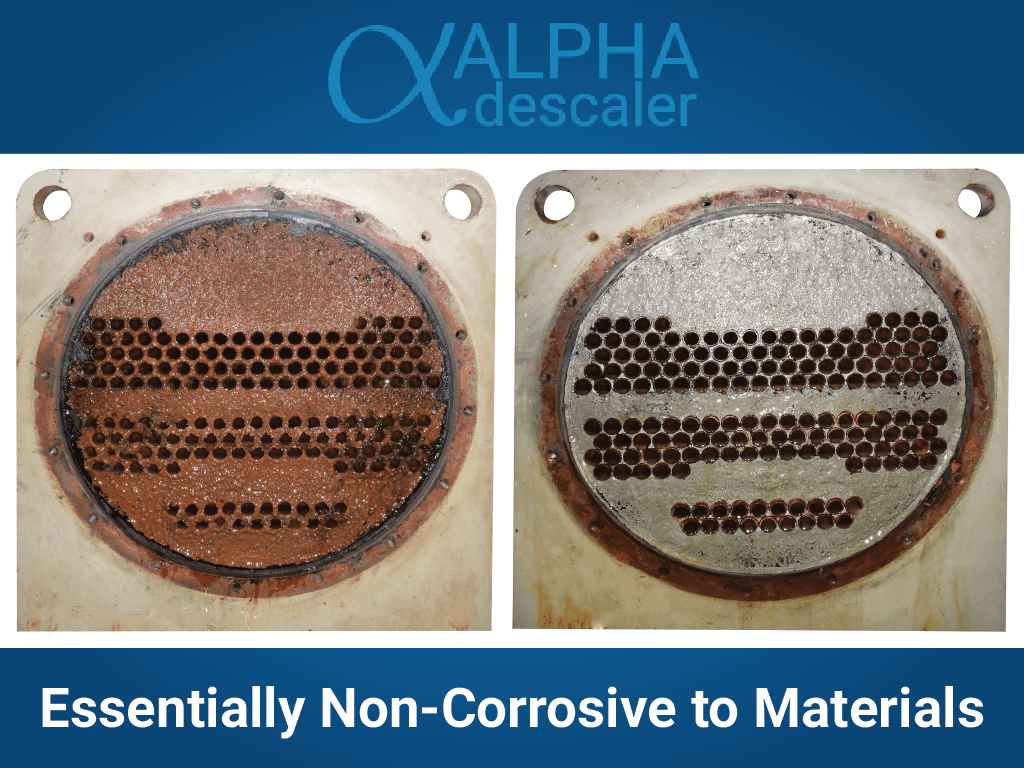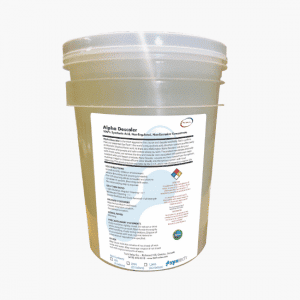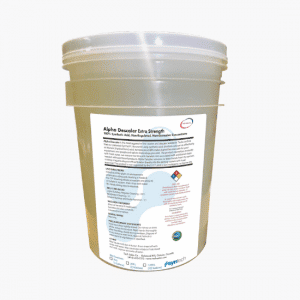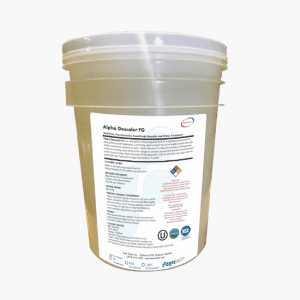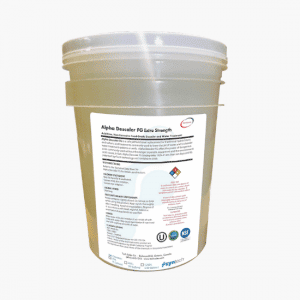Alpha Descaler and Alpha Descaler FG are essentially non-corrosive to most materials. This is a very important in descaling operations, especially compared to the alternatives used for descaling, to maintain the long term integrity of water cooled, water heated and water operated equipment.
A material is considered corrosive if the rate on either steel or aluminum surfaces exceeding 6.25 mm per year at a test temperature of 55°C (131°F) when tested*on both materials. Alpha Descaler and Alpha Descaler FG meet these standards and can be considered non-corrosive.
Other tests have been done on materials normally found in heat exchanger, and other water heated, water cooled, and water operated equipment and in virtually every case had the lowest corrosion rates of all competitive mineral acid based competitive products. As a result Alpha Descaler and Alpha Descaler FG do not require hazardous labelling of any sort.
Compared to other products:
Hydrochloric acid and even inhibited hydrochloric acid based products, the corrosion rate is much higher and simply cannot be considered non-corrosive by any legitimate definition. In addition no hydrochloric acid based product is safe to use on stainless steel due to the danger of hydrogen embrittlement. This is not the case with Alpha Descaler nor Alpha Descaler FG
Sulphamic acid may be used on stainless steel and is less corrosive than hydrochloric acid based products but still can be highly corrosive, eve with inhibitors. However, apart from safety in handling much of the material used in gaskets and seals in water systems may not be compatible with the acid so leaks may occur if this is the case. This is also the same for hydrochloric and other acids of course but each acid must be checked for compatibility of the materials used in the system. Still the corrosion rate of sulphamic acid is considerable.
Phosphoric acid is less corrosive than hydrochloric acid but also much slower to react in descaling applications and is very expensive. However phosphoric acid descaler may be used on stainless steel. One of the problems using phosphoric acid descalers is a residue some product can leave after use which can negatively affect the product cleaned such as a heat exchanger.
Citric acid is very slow and very expensive but is very safe on most materials. While much more safe than hydrochloric, sulphamic or phosphoric and safe for stainless steel it is very slow and not always practical for industrial applications. While safe on stainless, it can be actually more corrosive on regular carbon steel. Some versions combining citric with lactic acid will work faster but can be extremely costly. But even then, citric products do have a measurable corrosion rate on some materials.
Alpha Descaler and Alpha Descaler FG has far less rates of corrosion than any of the above materials and works as fast as any hydrochloric acid based products while being safe on all materials including stainless steel, and will not affect materials such as the used in gaskets on any equipment that is cleaned of water scale.

